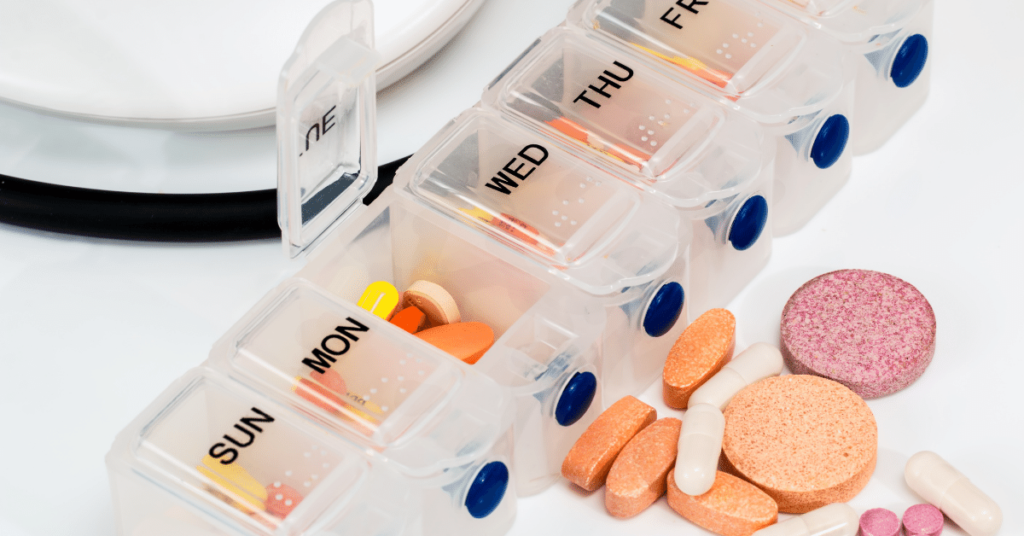Contents
Diagnosis And Treatment For Hypertension
Diagnosis of hypertension is important because it is a silent disease that you usually are not aware of. There may be no signs and symptoms of it for a long time. However, It might keep on damaging your body from the inside and eventually cause severe health problems like heart disease, stroke, and so on. That is why early diagnosis and treatment for hypertension before it gets severe is important.
Resting Blood Pressure
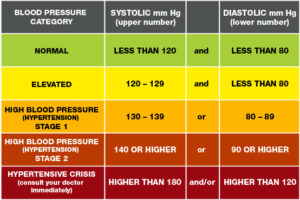
To get the most accurate blood pressure reading, resting blood pressure is checked. To use this measurement-
- Your blood pressure should be recorded in a quiet, warm environment after you have been sitting quietly for at least five minutes with your feet supported.
- You should not have consumed caffeine or tobacco for at least 30 minutes prior to the test.
Your doctor usually takes at least two blood pressure readings, at two different times. Because your blood pressure fluctuates throughout the day for different reasons. But in the case of resting blood pressure, two blood pressure tests are done, both performed at a break of five minutes. If the readings vary more than 5 mmHg, further tests may be performed until closer readings are obtained. This is done to get a consistent reading not to check widely ranging measures.
Once your doctor has measured your blood pressure accurately, they will classify the results depending on your systolic and diastolic blood pressure values.
In a blood pressure reading, you will see two numbers-
- Systolic blood pressure: It is the maximum pressure during a heartbeat when the heart is sending blood throughout the body. Normal blood pressure is 120 or less.
- Diastolic blood pressure: It is the lowest pressure between heartbeats when the heart is filling with blood. Normal diastolic blood pressure is less than 80.
Both of these numbers are important in blood pressure reading. But if you are above the age of 50, systolic reading is even more important. The elderly develop isolated systolic conditions in which the diastolic pressure is normal but systolic pressure is high. So, your doctor may diagnose isolated systolic blood pressure too.
Diagnosis Of High Blood Pressure
Health professionals recommend everyone above the age of 18 years for blood pressure screening. Tests may be ordered by your doctor to check for causes of hypertension. These tests could be the following-
Measuring Blood Pressure At Home
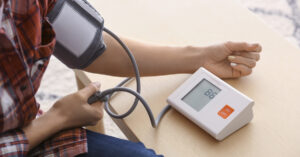
Blood pressure is most often measured with a device known as a sphygmomanometer. You must have seen it with your doctor or in a clinic. It consists of a stethoscope, arm cuff, dial, pump, and valve. You can get your blood pressure measured by a health care provider, at a pharmacy, or you can have it tested at your home.
Home monitoring devices are easily available and are inexpensive, just make sure to check if the cuff fits. Home blood pressure readings can be especially helpful in diagnosing and monitoring hypertension but before beginning the treatment of blood pressure, you should bring these results to a doctor’s and check your blood pressure once again.
And have it checked against the home readings for accuracy. You can also bring the same device to your doctor for confirmation.
Blood Test
A blood test is needed to check if your blood pressure is high due to another health condition. Blood tests can be done to assist in the diagnosis of hypertension. This test can include electrolyte levels, blood glucose levels.
Thyroid function tests and kidney function tests. The test may help in diagnosing the reason behind the possible cause of hypertension.
Urine Test
Urine tests can help in figuring out if diabetes, kidney failure, or drugs are contributing to increased blood pressure. sometimes a doctor finds about high blood pressure during a urine test for other diseases. You can get this test from any nearby clinic.
Ambulatory Blood Pressure Monitoring (ABPM)
ABPM device has a blood pressure cuff that is worn on the arm and attached to a recording device, which can be worn on a belt. ABPM takes and logs blood pressure at 15- minutes or 30- minutes intervals over a 24-48 hour period. As a result, the blood pressure fluctuations that occur normally in a day can be recorded for an assessment of blood pressure.
Electrocardiogram (EKG)
An EKG is a simple test that assesses your heart rhythm. Hypertension can cause long-term changes that result in heart rhythm problems, so an electrocardiogram is performed to help assess the severity of hypertension.
Echocardiogram
An echocardiogram is an imaging test that visualizes your heart as it moves. Excessively high blood pressure can cause heart function abnormalities. Echocardiograms can identify these problems and the cause behind them.
Ultrasound
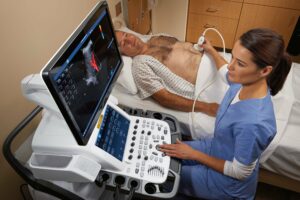 An ultrasound test checks blood flow through arteries at pulse points in different parts of your body like arms, legs, hands, and feet. The ultrasound test is a way of diagnosing peripheral vascular disease which commonly occurs in people with high blood pressure. It is also used to diagnose portal hypertension as it can detect the narrowing of arteries that lead to high blood pressure.
An ultrasound test checks blood flow through arteries at pulse points in different parts of your body like arms, legs, hands, and feet. The ultrasound test is a way of diagnosing peripheral vascular disease which commonly occurs in people with high blood pressure. It is also used to diagnose portal hypertension as it can detect the narrowing of arteries that lead to high blood pressure.
After the tests, your doctor will ask you about your daily habits and family history of high blood pressure to better assess the condition. If your blood pressure readings are more than normal, then keep monitoring your blood pressure more often. Also do not forget to get help from a doctor.
Medicational Treatment For Hypertension
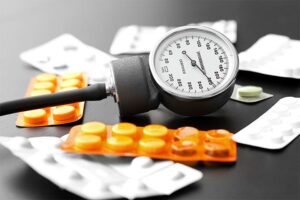
If diet and exercise are not sufficient to lower blood pressure, then the doctor recommends these medicines to the patient. After diagnosis, treatment for hypertension begins. Many patients go through a trial phase with blood pressure medications to find the best suitable option. You may need to try different medicines until you find what medications work best for you.
Diuretics
These are often the first medications a doctor recommends to blood pressure patients. Diuretics are also called “water pills” because they reduce the sodium and fluid levels in the body to lower blood pressure. And you urinate frequently after taking diuretics. However, there are some side effects of diuretics as well like muscle weakness, leg cramps, and tiredness. And if you have diabetes, your doctor will probably recommend some other medicine because diuretics may elevate blood sugar levels.
Beta-blockers
Beta-blockers are another medicine used to treat hypertension. These medicines make your heartbeat slower by blocking the effects of the sympathetic nervous system on the heart. This reduces the workload of the heart by requiring less blood and oxygen, which slows the heart rate. The doctors commonly prescribe beta-blockers to treat other conditions as well including abnormal heart rate.
There are some complications of beta-blockers like dizziness, insomnia, fatigue, erectile dysfunction, cold feet, and hands, or even depression.
Angiotensin-converting enzyme inhibitors (ACE inhibitors)
Angiotensin-converting enzyme inhibitors are another class of antihypertensive drugs. These medicines aim to stop the production of angiotensin- which is a hormone that tightens the blood vessels. Without the angiotensin, blood vessels do not narrow and blood pressure also drops down.
Calcium Channel Blockers
Calcium channel blockers are medicines that reduce the movement of calcium into cells of the heart and vessels. This reduces the strength of heart contradictions and relaxes the arteries, allowing them to relax, lowering blood pressure. Your doctor may prescribe Calcium channel blockers alone or with other blood pressure medications. Side effects of these medicines can include heart palpitations, dizziness, swollen ankles, and constipation.
Angiotensin Receptor Blockers (ARBs)
Angiotensin receptor blockers block angiotensin from binding with receptors in the blood vessels. ARBs work the same way as ACE inhibitors except ACE stops the production of angiotensin whereas ARB stops angiotensin from binding with the receptors. Side effects of ARBs can include dizziness, muscle cramps, and insomnia.
Alpha-blockers
In some conditions, your body produces hormones called catecholamines. These hormones can bind to alpha receptors which are part of cells. When this happens, your blood vessels narrow and your heart beats faster causing blood pressure to rise.
Alpha-blockers block this binding of catecholamines to alpha-receptors. As a result, blood vessels stay open and wide. Blood flows more freely into your blood vessels and your heart beats normally. Eventually lowering your blood pressure.
Vasodilators
Vasodilators relax the muscles in the walls of arterioles which are small arteries. This widens the blood vessels and allows blood to flow more easily. It leads to a fall in blood pressure.
The diagnosis and treatment for hypertension are required for maintaining blood pressure to the optimum range. There are even more other medications that can lower blood pressure. Your doctors may prescribe these medications or others in combination, according to what works best for you. Although, in some situations, these medicines have side effects, so do not take them without prescription, and also take them exactly as prescribed.
A Word From Mantra Care
If you are looking for an affordable hypertension treatment MantraCare can help- Book a trial hypertension care session
